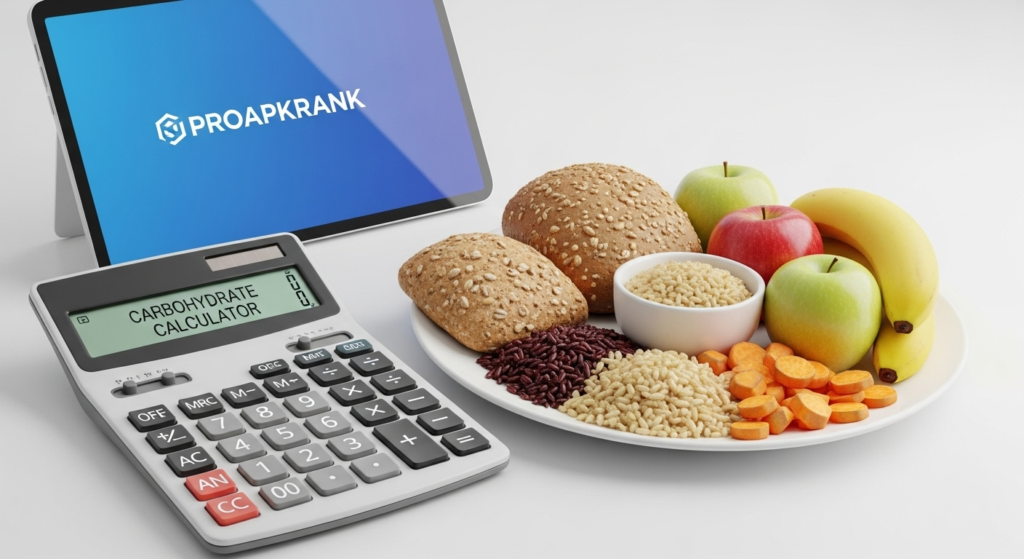
Carbohydrate Calculator
Exercise: 15-30 minutes of elevated heart rate activity.
Intense exercise: 45-120 minutes of elevated heart rate activity.
Very intense exercise: 2+ hours of elevated heart rate activity.
Your Results
What are Carbohydrates?
Carbohydrates (carbs) are one of three primary macronutrients that provide energy, along with fats and proteins. Carbohydrates are broken down in the body or converted into glucose, and serve as the body's main source of energy. They can also be stored as energy in the form of glycogen, or converted to fat (which can also be used as a source of energy).
Types of Carbohydrates
Carbohydrates are often classified as either simple (monosaccharides and disaccharides) or complex (polysaccharides or oligosaccharides), originally to create a distinction between sugars and other carbohydrates. However, there are many foods that contain multiple types of carbohydrates, such as fruits and vegetables, which can make the classification of certain foods ambiguous. Although carbohydrates are not essential nutrients (nutrients required for normal physiological function that the body cannot synthesize), they are an efficient source of energy that can potentially reduce the risk of cardiovascular diseases, obesity, and type 2 diabetes if consumed in controlled amounts.
The three main types of carbohydrates are sugar, starch, and fiber:
- Sugars are the simplest form of carbohydrates and can be found naturally in fruits, dairy, and vegetables; they can also be found in processed form in candy, cookies, cakes, and many beverages.
- Starches are complex carbohydrates that can be found naturally in many types of beans, vegetables, and grains.
- Fibers are complex carbohydrates that can be found in fruits, whole grains, vegetables, and many types of beans. Fibers are essential for digestion.
How Many Carbs Should I Eat?
While this estimate varies depending on a number of factors, the Institute of Medicine recommends that a minimum of 130 grams of carbohydrates be consumed daily for adults. Other sources recommend that carbohydrates should comprise 40-75% of daily caloric intake. Although carbohydrates are not essential nutrients, and there are many fad diets that highly restrict or even eliminate carb intake, there are benefits to consuming a controlled amount of "good" carbs (which will be described below). When carbs are consumed in excess of what can be stored as glycogen, they are converted to fats, which act as stored energy. In a case where insufficient carbs and fats are available to be used for energy, the body will start breaking down protein instead, which can be problematic. Proteins perform many essential functions in the body, including serving as the building blocks for tissues and organs, driving many chemical reactions throughout the body, facilitating communication throughout the body, transporting molecules, and many more.

MATH CALCULATOR’S
Math Calculators To perform basic calculations, use the basic math calculator or one of the calculators listed below. Scientific Calculator Fraction Calculator Percentage Calculator Random

ALL CALCULATOR’S
Math Calculators To perform basic calculations, use the basic math calculator or one of the calculators listed below. Scientific Calculator Fraction Calculator Percentage Calculator Random

S9 Game Download (Super 9) – Earn Real Money by skysoft services
S9 Earning Game – Play & Earn Real Money 🎮💰 Turn Gaming into Earnings with S9 Earning Game! 💰🎮 Introduction Looking for a fun and

Adobe Photoshop 2023 Free Download By Proapkrank
Introduction Adobe Photoshop 2023 is the latest version of the world’s most powerful image editing software. Whether you’re a professional designer, photographer, or casual user,

AnyDesk 9.0.4 – The Ultimate Remote Desktop Software
Introduction In today’s digital era, remote access software is essential for professionals, IT support teams, and businesses. AnyDesk 9.0.4 is one of the best remote

WinRAR (64-bit) – The Ultimate File Compression Tool
Introduction In today’s digital world, file compression is an essential tool for managing storage space and sharing large files efficiently. WinRAR (64-bit) is one of

MATH CALCULATOR’S
Math Calculators To perform basic calculations, use the basic math calculator or one of the calculators listed below. Scientific Calculator Fraction Calculator Percentage Calculator Random

ALL CALCULATOR’S
Math Calculators To perform basic calculations, use the basic math calculator or one of the calculators listed below. Scientific Calculator Fraction Calculator Percentage Calculator Random

S9 Game Download (Super 9) – Earn Real Money by skysoft services
S9 Earning Game – Play & Earn Real Money 🎮💰 Turn Gaming into Earnings with S9 Earning Game! 💰🎮 Introduction Looking for a fun and

Adobe Photoshop 2023 Free Download By Proapkrank
Introduction Adobe Photoshop 2023 is the latest version of the world’s most powerful image editing software. Whether you’re a professional designer, photographer, or casual user,

AnyDesk 9.0.4 – The Ultimate Remote Desktop Software
Introduction In today’s digital era, remote access software is essential for professionals, IT support teams, and businesses. AnyDesk 9.0.4 is one of the best remote

WinRAR (64-bit) – The Ultimate File Compression Tool
Introduction In today’s digital world, file compression is an essential tool for managing storage space and sharing large files efficiently. WinRAR (64-bit) is one of